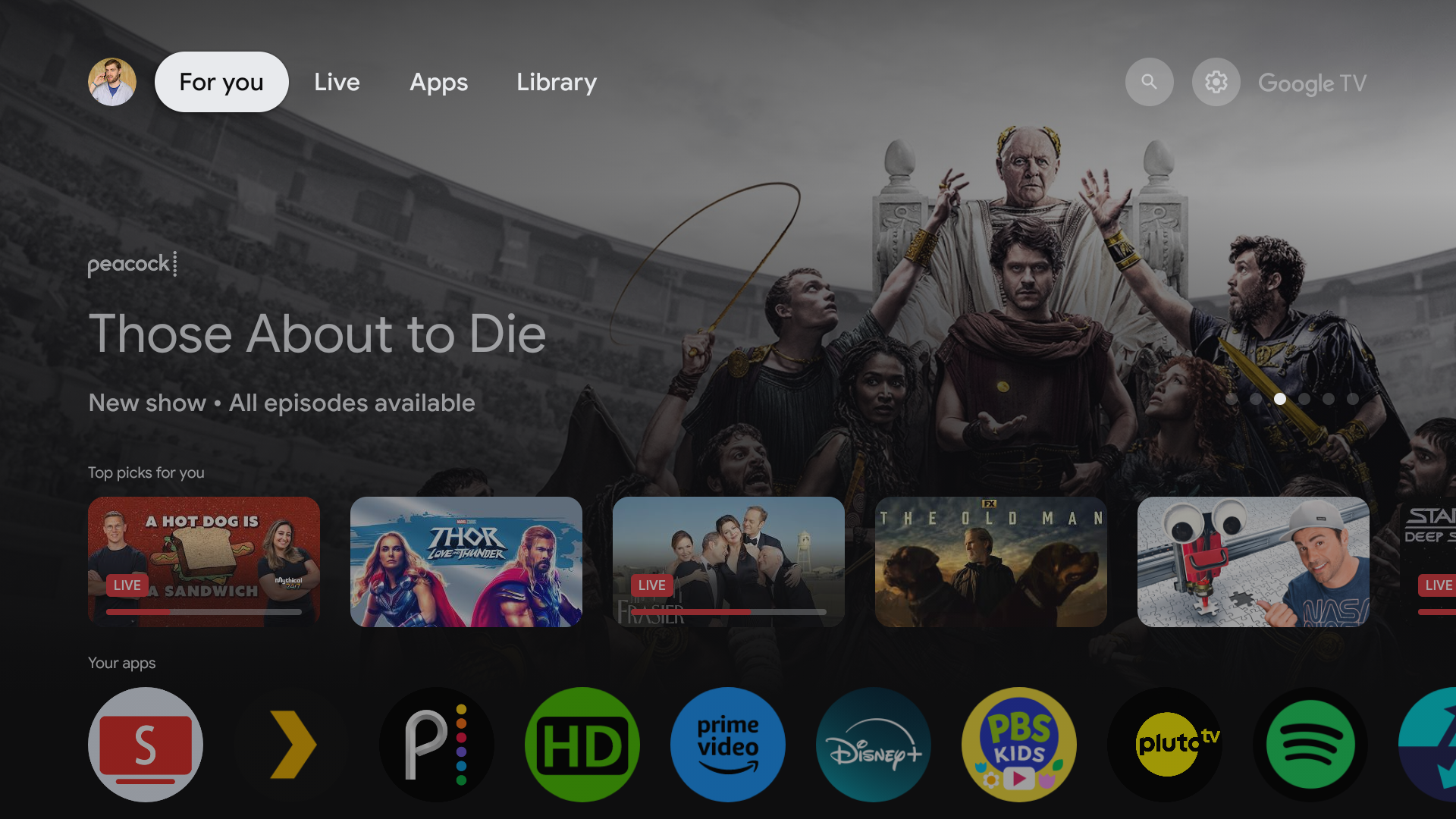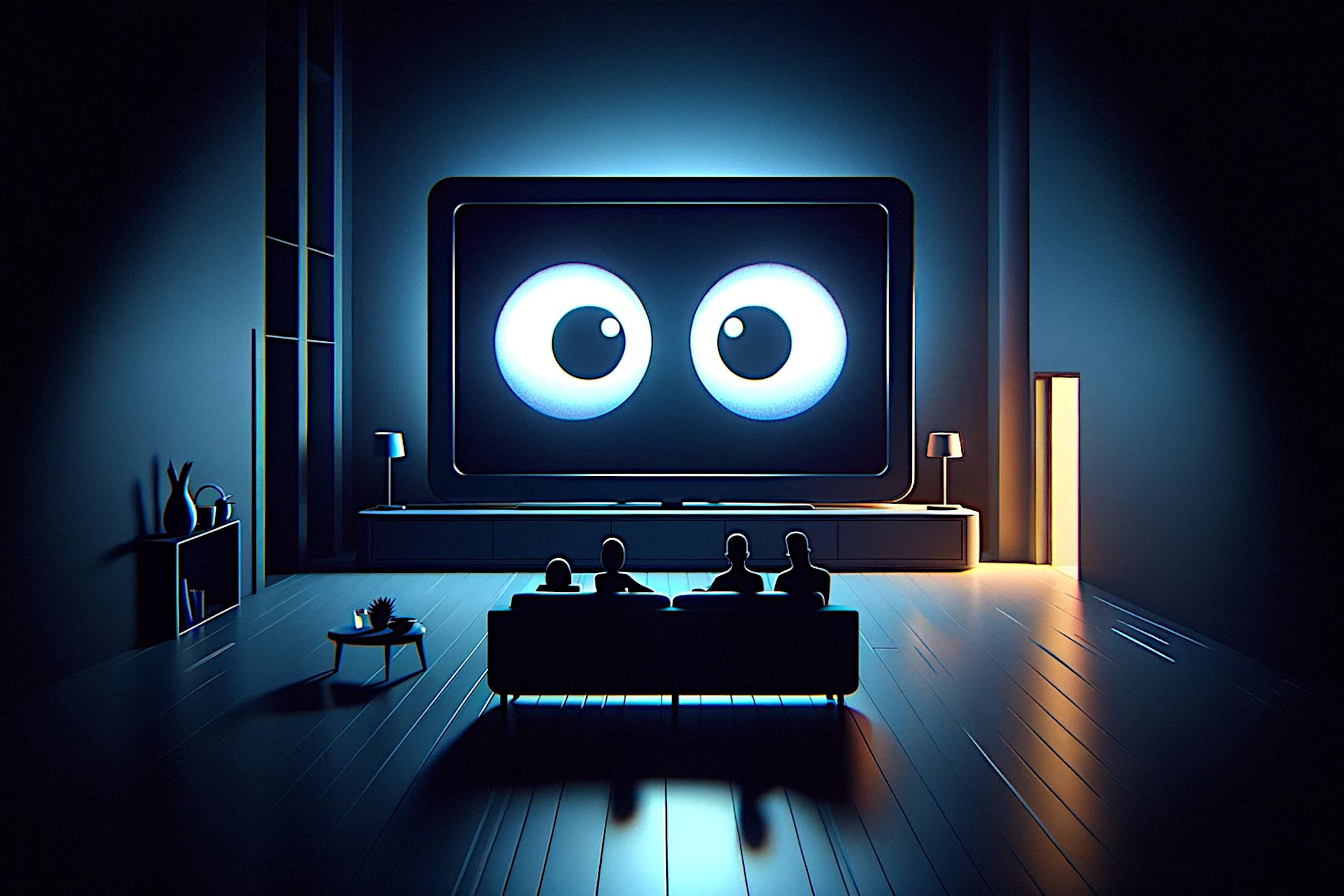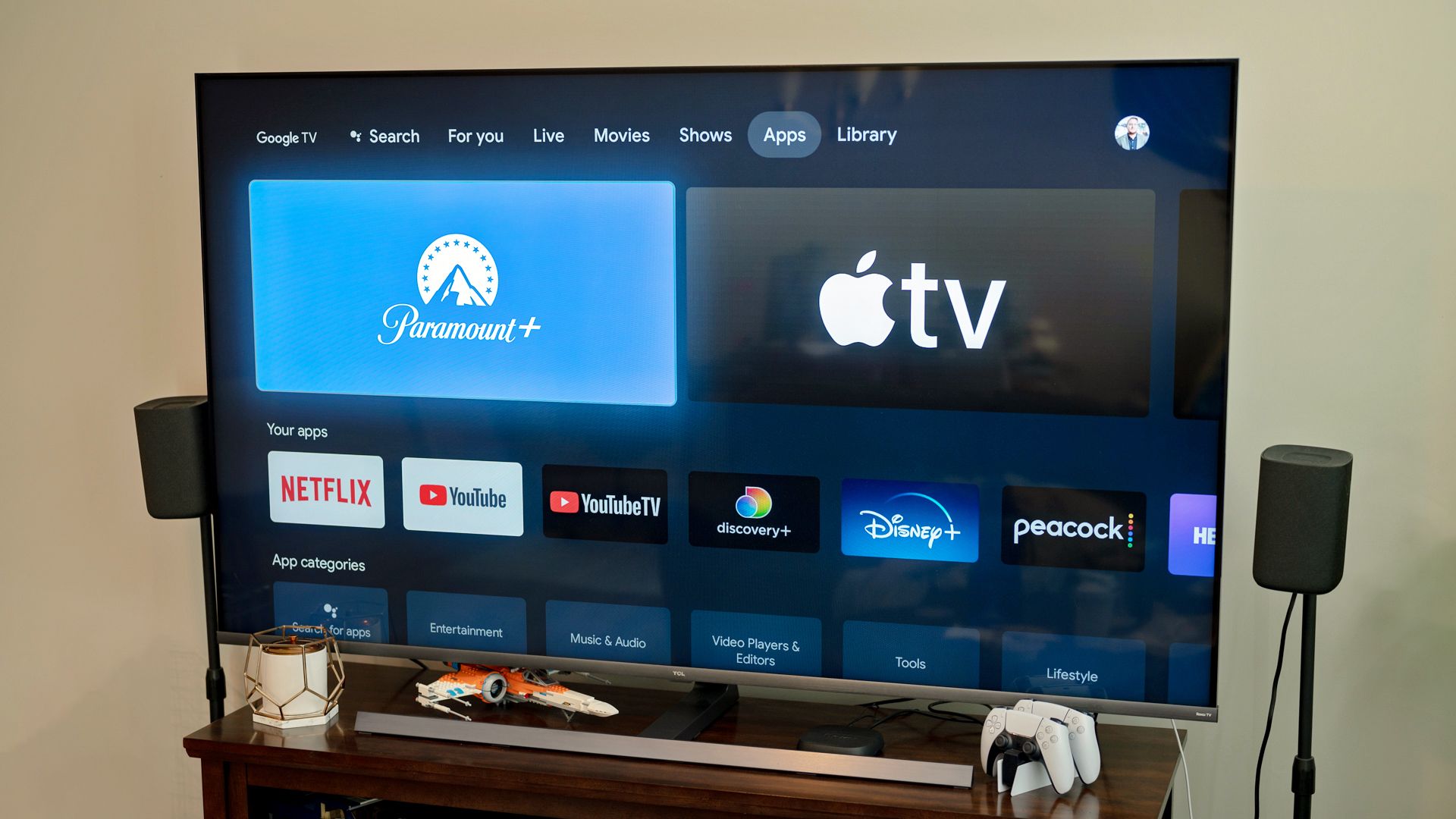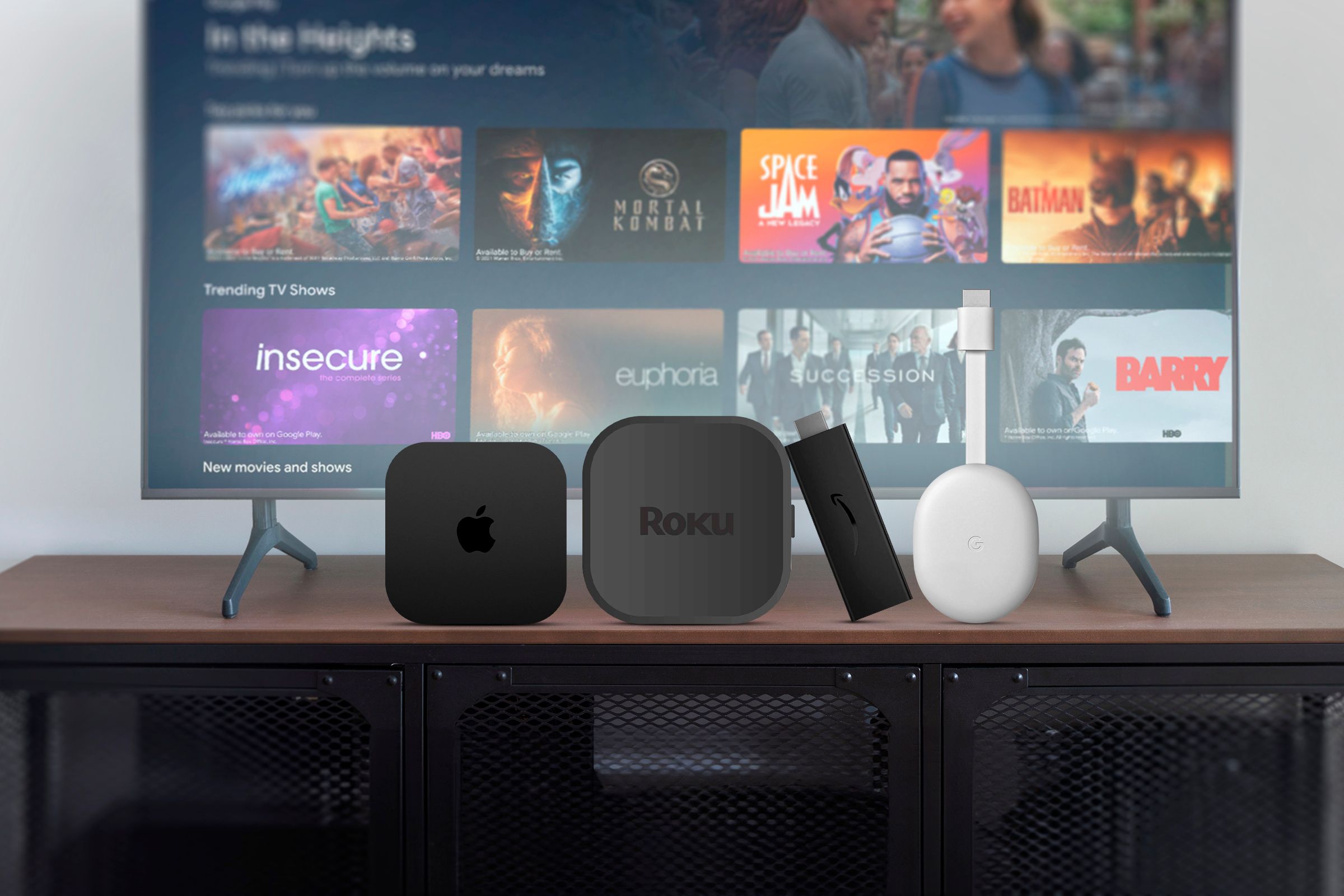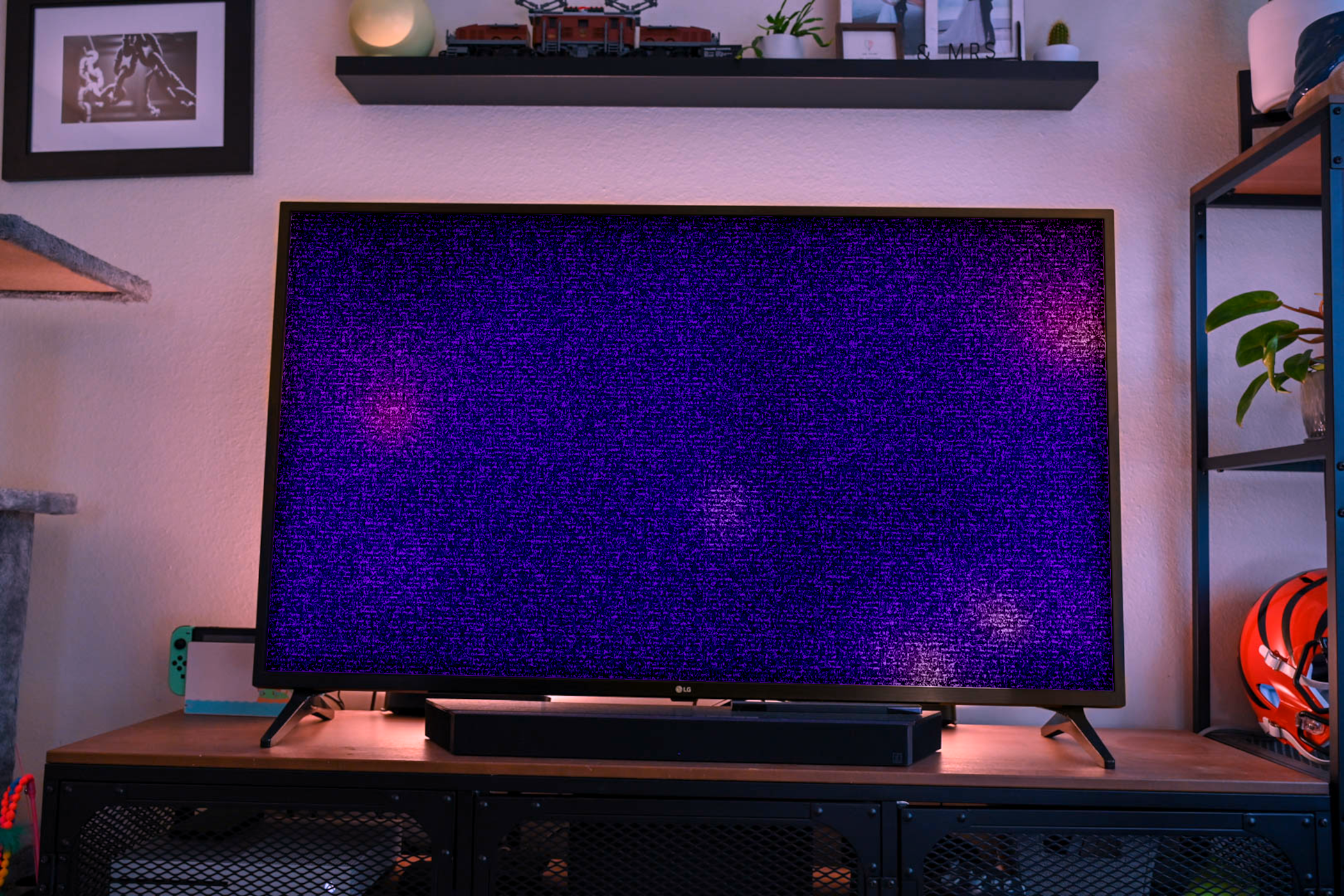
Top 7 Compelling Factors That Justify My Continued Use of Traditional Television

Top 7 Compelling Factors That Justify My Continued Use of Traditional Television
Quick Links
- What Is a Dumb TV?
- The Ads on Smart TVs Will Only Get Worse
- Smart TVs Can Dictate How You Watch TV
- Your Smart TV Is Watching You
- Smart TVs Have a Short Shelf Life
- Smart TVs Can Introduce Security Vulnerabilities
- Smart TVs Have Slow and Clunky Interfaces
- My Other Devices Are Smarter Than Most Smart TVs
If you’re thinking of replacing your TV, chances are the only options available to you are smart TVs. While not all smart TVs are bad, they can come with several caveats that will make you nostalgic for your old “dumb” TV. I’m keeping mine around, and maybe you should, too.
What Is a Dumb TV?
Dumb TVs are what TVs were before we got the bright idea of connecting them to the internet. They don’t have operating systems, there are no apps, and definitely no smart features like voice control or screen mirroring. You simply turn it on, connect your input, and watch whatever you want.
These days, not many, if any, TV manufacturers still make Dumb TVs, and the ones that still exist are usually missing key features like 4K video or Dolby Atmos. So, why would you want a TV with fewer instead of more features? Here are six reasons why a dumb TV is a better experience than a smart TV.
The Ads on Smart TVs Will Only Get Worse
Having a smart TV means making your peace with ads. Manufacturers try to justify putting ads on your TV by saying that the ad revenue they earn helps to subsidize the cost of production and keep prices low. But that’s a little hard to believe when even the high-end TVs—the ones that cost several thousand dollars, still get ads.
But let’s forget that for a moment and accept that ads are an inescapable reality of smart TVs. Personally, I don’t mind them much so long as they are restricted to the home screen and I can easily blast past them.
The problem, however, is that these ads are quickly becoming obnoxious, and they show no sign of slowing down.
For example, in 2022, Vizio started experimenting with what it called “jump ads.” They worked like this: Say you were watching a broadcast of MasterChef on your local FOX channel. Your Vizio TV would analyze your screen, identify the show, and crosscheck it against the content library of streaming services on its OS. If the show were available on Netflix, for example, Vizio would then show an ad encouraging you to watch subsequent episodes of MasterChef on demand on Netflix. In essence, your TV would generate and insert new ads into your live shows in addition to the ones you already have to suffer through on cable.
As if that wasn’t bad enough, a few months ago, Roku stepped things up a notch and filed a patent that would allow them to show ads on your TV whenever it’s idle, regardless of whether you’re streaming a show on Netflix, playing a game on your PS5, or even watching a DVD.
That is way too far. I can put up with a few ads tucked into small corners, but turning my TV into a glorified billboard every time I step away for 30 seconds is a big no-no for me.
Smart TVs Can Dictate How You Watch TV
Smart TVs do a lot of behind-the-scenes work to deliver the picture you see on your screen. Usually, this results in a sharper and clearer image, but sometimes, all that extra processing can actually make things worse. And now, you might not even have the option to turn it off.
Recently, some Roku TV users found themselves in this exact situation. After a software update, they discovered that “motion smoothing” had been turned on with no way to disable it. Motion smoothing is a feature that adds extra frames to make a show match your TV’s refresh rate, but the results can be hit or miss. To fix the issue, users had to try various workarounds, and when that failed, wait for Roku to release another update.
In this case, it seems like the situation was more of a glitch than Roku intentionally forcing their preferences on you. But it does make you wonder: What’s to stop your smart TV manufacturer from deciding how they think you should experience your favorite shows?
Your Smart TV Is Watching You
Smart TVs can be just as bad as your phone or PC when it comes to collecting and sharing your data . For example, smart TVs that come with voice control features record what you say and sometimes forward those recordings to third parties for remote processing. Given that we usually mount our TVs in our living spaces where we receive guests, hang out with our family, or just gossip with friends, it’s a little frightening to think about what they may have accidentally overheard.
Even if they aren’t recording everything you say, smart TVs are still watching you in the sense that they are tracking your TV-watching habits. With automatic content recognition (ACR), they can identify what shows you’re watching, whether it’s on cable, Netflix, or Blu-ray, and from there, make deductions about your interests, political affiliations, and even income bracket. They then combine this data with other information about you, such as your sex, age, and marital status, to create a profile of you. They sell this profile to analytics and ad companies, who in turn use it to craft ads targeted at you.
Your TV collecting and selling information about you may sound like the beginning of a dystopian movie, but it is a perfectly legal business, provided you consent. And guess what? You probably already did without realizing it. Those terms and conditions you agreed to when setting up your TV for the first time likely contained some legal jargon about consenting to your TV gathering and sharing data about you.
However, if it’s any consolation, you can revoke that consent at any time and stop your smart TV from spying on you .
Smart TVs Have a Short Shelf Life
If I’m going to spend thousands of dollars on a new TV, I expect to get at least double-digit years of value out of it before it needs replacing . Unfortunately, smart TVs just don’t have that kind of longevity, and there are two main reasons why.
Firstly, as with any smart device, you need to constantly update your TV to ensure that it remains compatible with your favorite streaming apps. Unfortunately, smart TVs are not renowned for frequent software updates. Even the best ones tend to max out at five years of support. So, what happens when your favorite streaming service requires you to update your TV to use the app? 2011 Samsung TV users learned this the hard way when Netflix was suddenly no longer supported on their TVs in 2019.
Secondly, smart TVs occasionally experience software glitches, and your TV can easily become a glorified wall decoration because of a faulty update or a badly timed power outage. In one example of this, some TCL Roku TV users woke up to find their TVs bricked after a simple update. Sometimes, the problems can be resolved with a little tech support, but other times, there’s nothing left to do but take the TV to the recycling center.
Smart TVs Can Introduce Security Vulnerabilities
Another gripe I have with smart TVs is that they introduce a fresh set of security vulnerabilities. I have already mentioned that smart TVs don’t get many years of software updates. A spillover effect of their aging software is that they are vulnerable to malicious actors. It wouldn’t take much for a determined hacker to bypass their security protection and gain control of your TV.
Once in, a hacker could do immense damage. They could record you through your TV and blackmail you with sextortion scams, listen in on private conversations, and use the information they gather in phishing scams, or steal your personal information and sell it to other malicious actors.
Smart TVs Have Slow and Clunky Interfaces
While some smart TVs run on Android, many others use proprietary operating systems. However, the bitter truth is that TV companies are hardware manufacturers, not software developers, and most times, that shows. Many TV OSs are not fluid or intuitive, and they can be extremely clunky to use.
It also doesn’t help that your smart TV is too dumb to be smart . By this, I mean that the hardware on which it runs is grossly underpowered, and as time passes, it will start to suffer under the strain. That means a choppy OS, lag, and sometimes total unresponsiveness. Just a few years after you purchase a smart TV, navigating the home screen can be frustrating enough to make you want to scream.
My Other Devices Are Smarter Than Most Smart TVs
Perhaps the most offensive thing about smart TVs is that they just rehash the same features my other devices already do, only worse. For example, you can stream your favorite movies from your game console , with arguably better quality than on a smart TV.
The same goes for streaming boxes and sticks. These are even more appealing options because they actually have capable hardware, don’t cost an arm and a leg, and are easily replaceable if they stop providing value.
These days, it’s practically impossible to buy a decent TV that doesn’t ask for your Wi-Fi password. If you’ve got an old TV covered in dust somewhere, this is your sign to take better care of it. With how manufacturers are phasing out dumb TVs, you might just have treasure in your hands. If you’ve got nothing but smart TVs, don’t despair; there are still a couple of ways to buy a dumb TV, provided you’re willing to accept a few trade-offs.
Also read:
- [Updated] Annual List Highest Rated FREE LUT Sources Online for 2024
- [Updated] In 2024, Mastering Google Meet Recording on iPhones/Androids
- Best Online Coding Courses
- Discovering Affordable Joy in Hobby Drones: In-Depth Look at Syma S111G RC Helicopter for Indoor Use
- Discovering VR A Concise Explanation for All
- Elite Recording Equipment Headset Screen Preferred
- In 2024, Smooth Operation File Transfer Between Different OS Phones
- In-Depth Analysis of the Samsung Galaxy Fit - Ideal Gadget to Enhance Your Workout Routine
- Navigating Non-Changeable Energy Modes in Windows 11
- Review of the Barnes & Noble Nook GlowLight 3 - Ideal for Reading at Night
- The Best Wake-Up Time: Mirari's Children'er Alarm Clock Unboxed and Tested
- The Pros & Cons of Asus BW-16D1X-U Blu-Ray Burner - Elegance with Unique Flaws
- Top Rated Ion Audio Tailgater Plus Analysis: Experience Endless High-Bass Sound with Ease
- Top-Ranked Alienware Aurora R11 Analysis: Ultimate Gamer's Choice
- Top-Rated Car Jump Starters : Professional Reviews & Ratings by CNET
- Ultimate Guide: Resolving Critical Bugs in Black Ops 4
- Upgrading Your Logitech C920: Detailed Instructions for Windows 11, 10 & 8 Users
- Title: Top 7 Compelling Factors That Justify My Continued Use of Traditional Television
- Author: Eric
- Created at : 2024-11-23 01:57:56
- Updated at : 2024-11-25 00:25:14
- Link: https://buynow-reviews.techidaily.com/top-7-compelling-factors-that-justify-my-continued-use-of-traditional-television/
- License: This work is licensed under CC BY-NC-SA 4.0.
